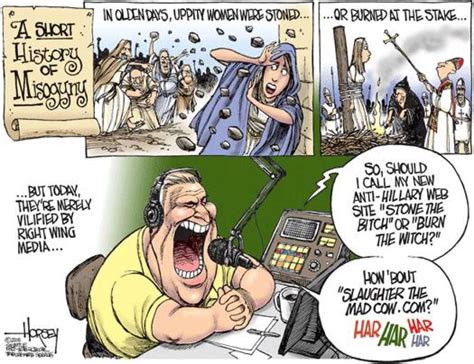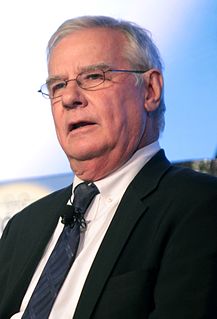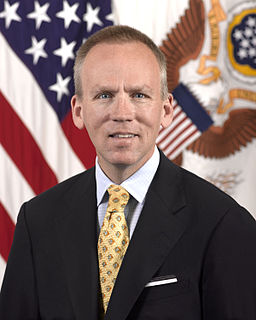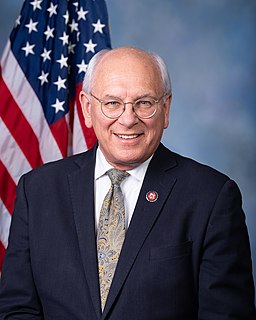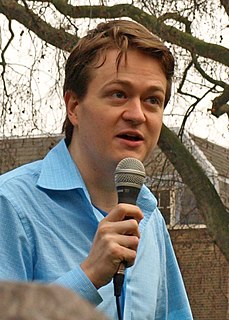A Quote by David Horsey
Ah, to be a conservative climate change denier. While real scientists must do all the research and engage in heated debates about just how bad things are going to be, the deniers can rest easy in the bliss of willful ignorance.
Related Quotes
I don't believe that climate-change fiction will change the mind of a denier because most of the deniers I've met are basically in a cult situation. It's a faith issue. It's not a rational issue. There's no fact that's going to change their mind. They simply believe in the cult of climate-change denial and it somehow feeds into the rest of the mythos of their own life story.
Despite the international scientific community's consensus on climate change, a small number of critics continue to deny that climate change exists or that humans are causing it. Widely known as climate change "skeptics" or "deniers," these individuals are generally not climate scientists and do not debate the science with the climate scientists.
The conference also has a moral duty to examine the corruption of science that can be caused by massive amounts of money. The United States has disbursed tens of billions of dollars to climate scientists who would not have received those funds had their research shown climate change to be beneficial or even modest in its effects. Are these scientists being tempted by money? And are the very, very few climate scientists whose research is supported by industry somehow less virtuous?
There are philosophical issues involved in that about choosing the right discount rate, the value, the future, and things like that which drive it. But its start with the premise that global warming is real and if you're a denier of that fact, then you're not going to find climate change mitigation policies to have particular appeal.
Climate scientists think of nothing but climate and then express their concerns in terms of constructs such as global mean surface temperature. But we live in a world in which all sorts of change is happening all the time, and the only way to understand what climate change will bring is to tell stories about how it manifests in people's lives.
Once and for all, people must understand that addiction is a disease. It’s critical if we’re going to effectively prevent and treat addiction. Accepting that addiction is an illness will transform our approach to public policy, research, insurance, and criminality; it will change how we feel about addicts, and how they feel about themselves. There’s another essential reason why we must understand that addiction is an illness and not just bad behavior: We punish bad behavior. We treat illness.
At first when I heard about climate change, I was a climate denier. I didn't think it was happening. Because if there really was an existential crisis like that, that would threaten our civilisation, we wouldn't be focusing on anything else. That would be our first priority. So I didn't understand how that added up.
